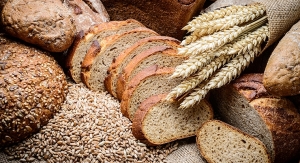02.27.19
A new study published in the JAMA Network Open journal suggests supplementation with omega-3 docosahexaenoic acid (DHA) during pregnancy could lead to lower blood pressure in childhood for offspring.
A prespecified secondary analysis of the Kansas University DHA Outcome Study (KUDOS)—a phase 3, double-blind, randomized, placebo-controlled clinical trial—was conducted at several local hospitals in the Kansas City, Kansas, metropolitan area.
Pregnant women (n=350) were enrolled in the KUDOS trial between January 10, 2006, and November 17, 2009, and were followed up until their children were 18 months of age. During pregnancy, the women received either three capsules per day of placebo (half soy and half corn oil) or 600 mg per day of DHA from a mean (SD) of 14.5 (3.7) weeks (all before 20 weeks) gestation until birth.
The parents of 190 children consented to additional follow-up of their children until six years, which ended April 29, 2016. Study personnel involved in testing were blind to the randomization until all children had completed the trial. Data analysis was performed from May 23, 2017, to July 10, 2018. In total, 171 children were included in this analysis. Of these children, 89 (52.0%) were randomized to the DHA group and 82 (47.9%) to the placebo group.
Systolic blood pressure (SBP) and diastolic blood pressure (DBP) were measured at 4, 4.5, 5, 5.5, and 6 years and were analyzed for possible covariates using mixed models to generate a final model.
Researchers found a statistically significant interaction between treatment (placebo or DHA) and child weight status (5-year body mass index <85th or >85th percentile) for both SBP and DBP. Children who were overweight or obese whose mothers received placebo during pregnancy had higher SBP and DBP compared with children who were overweight or obese whose mothers received DHA. No differences in the SBP and DBP were found between children who were overweight or obese whose mothers received DHA and children who were not overweight or obese.
The study concluded that DHA intake during pregnancy appeared to mitigate the association between childhood overweight condition or obesity and blood pressure.
A prespecified secondary analysis of the Kansas University DHA Outcome Study (KUDOS)—a phase 3, double-blind, randomized, placebo-controlled clinical trial—was conducted at several local hospitals in the Kansas City, Kansas, metropolitan area.
Pregnant women (n=350) were enrolled in the KUDOS trial between January 10, 2006, and November 17, 2009, and were followed up until their children were 18 months of age. During pregnancy, the women received either three capsules per day of placebo (half soy and half corn oil) or 600 mg per day of DHA from a mean (SD) of 14.5 (3.7) weeks (all before 20 weeks) gestation until birth.
The parents of 190 children consented to additional follow-up of their children until six years, which ended April 29, 2016. Study personnel involved in testing were blind to the randomization until all children had completed the trial. Data analysis was performed from May 23, 2017, to July 10, 2018. In total, 171 children were included in this analysis. Of these children, 89 (52.0%) were randomized to the DHA group and 82 (47.9%) to the placebo group.
Systolic blood pressure (SBP) and diastolic blood pressure (DBP) were measured at 4, 4.5, 5, 5.5, and 6 years and were analyzed for possible covariates using mixed models to generate a final model.
Researchers found a statistically significant interaction between treatment (placebo or DHA) and child weight status (5-year body mass index <85th or >85th percentile) for both SBP and DBP. Children who were overweight or obese whose mothers received placebo during pregnancy had higher SBP and DBP compared with children who were overweight or obese whose mothers received DHA. No differences in the SBP and DBP were found between children who were overweight or obese whose mothers received DHA and children who were not overweight or obese.
The study concluded that DHA intake during pregnancy appeared to mitigate the association between childhood overweight condition or obesity and blood pressure.

























